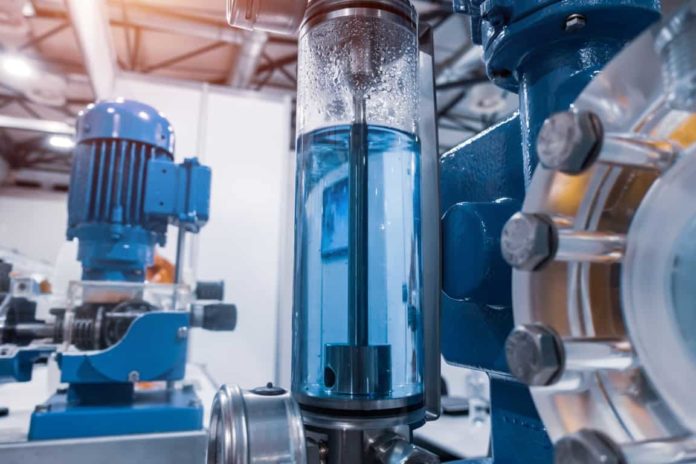The diaphragm liquid pump technology has been well-known in almost all industries since it’s crucial to safely and efficiently transport hazardous fluids or chemicals. Diaphragm pumps are dry running, have a self-priming function, are designed to meet safety standards, versatile, and easily installed.
Likewise, it’s applicable for a broad range of applications because of its ability to monitor, regulate, and filter flows. In addition, diaphragm pumps should meet the regulation and standards required by any industry. Thus, choosing the best diaphragm pumps, like KNF liquid pumps and others like them, is essential in any business involving pumps.
Listed below are the sectors that benefit from this technology.
Table of Contents
Food and Beverage Industry
The growth of the food and beverage industry benefits significantly from Diaphragm pumps, particularly Air-Operated Double-Diaphragm (AODD) pumps. In particular, the pump’s adaptability and safety properties make them an indispensable option for this industry.
Why? Because it’s vital to maintain a high degree of sanitary conditions during the transfer of ingredients in the production process. Because of this, pump materials must meet Medicines and Healthcare products Regulatory Agency (MHRA) standards.
For MHRA-compliant diaphragm pumps, materials such as stainless steel and PTFE are the best options available. These materials, unlike porous materials, are impervious to contamination when they come into touch with contaminants.
Chemical Industry
The chemical sector demands efficient and safe pumps to protect the people and the work environment more than any other. A chemical manufacturer deals with hazardous, extremely flammable, and explosive acids when used in their products.
Moreover, some chemicals used in industrial chemical processes are not only dangerous if handled wrong, but they may also result in substantial expense if the system fails and product leaks occur. Hence, they need high-quality pumps for their operation.
In particular, AODD pumps are among the best options when handling hazardous substances because of their construction materials and design combinations. With their compressed air-based operation, they are especially well-suited for usage in chemicals with high combustion or potentially explosive environments.
Water Treatment
Water purification appears to be a simple operation, but it is rather complex. When it comes to water treatment and purification, there are several variables to consider.
In addition, pumping wastewater differs significantly from pumping pure water. Sometimes the fluid includes fibres and other abrasive solids. The water purification procedure necessitates the use of a variety of harsh chemicals.
Thus, diaphragm pumps are the best answer for these working environments because of their adaptability, design, and durability. Moreover, they can handle hazardous chemicals and high viscosity fluids without compromising safety.
Manufacturing
For manufacturing industries, pumping fluid is essential. Furthermore, the pumped liquid usually contains a variety of particles.
Diaphragm pumps can handle fluids including sludge, slurries, pebbles, and other solids because of their infinite variable flow rates and varied discharge pressures. Diaphragm pumps can also handle harsh chemicals and even viscous fluids.

Pharmacy and Cosmetic
Pharmaceutical and cosmetic industries use pumps much like any other sector since measuring accuracy and precision are essential in this type of industry.
Diaphragm pump technology has several advantages in various disciplines relevant to pharmaceutical manufacturing. It’s capable of maintaining high levels of containment and preventing cross-contamination. It also responds to different process conditions required by industrial hygiene standards.
Dairy Industry
Food safety issues, poor efficiency, and product degradation in the dairy business are common problems with pumping equipment. In addition, the efficiency and ability of the pump to be cleaned play a significant role. When you combine this with the common criticism of the high cost of ownership, it becomes evident that a well-chosen pump may bring in a substantial return.
Diaphragm pumps address these issues. The majority of diaphragm pumps used in the dairy sector are designed to perform a wide range of tasks, from clean water pumping to operations requiring the greatest levels of sanitation and cleanliness.
In addition, they can handle viscous liquids and fluids containing both soft and hard solids like yogurts, ice cream, and butter.
Automotive
The vehicle business, like the chemical and pharmaceutical sectors, has stringent quality and safety rules that must be followed. Thus, constructing an efficient, safe, reliable manufacturing system is essential to meeting strict automotive industry requirements.
In the car industry, double diaphragm pumps are employed in situations where productivity, reliability, and safety are all important parts of the production process.
When spraying release agents or distributing paints and solvents on centralized systems, diaphragm pumps are commonly employed. It may also carry combustible or explosive materials like gasoline, biodiesel, and other types of gasoline.
Conclusion
When it comes to pumping applications, diaphragm pumps are the most flexible option. They’re among the most popular pumps globally due to their minimal maintenance costs and excellent overall performance and capabilities. Diaphragm pumps can handle a wide range of flow rates and pressures, making them ideal for your pumping needs.














